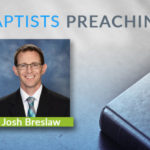- The Explore the Bible Lesson for Sept. 11 focuses on Amos 4:1-13.
In Marie-Antoinette-style greed, wealthy women of Samaria were fed as well as the cows of the region. They were plump on their own greed. All the while, they oppress the poor, crush the needy, and demand more wine from their husbands (4:1).
This is more than being out of touch with the needs of others; this is exploitation in the name of greed. This is more than ignorance to the struggles of those with less; this is taking advantage of those with less. They, too, worship but do so only in appearance. It is as if worship adds to their greed (1:4-5). They want the appearance of going to worship, but not the change it can offer. It was all show and all for themselves.
Throughout the prophets, judgements against idolatry and judgments against the mistreatment of others—especially the vulnerable—often are paired. In fact, they are paired together more often than they are not. The book of Amos speaks to this ancient truth: how we worship affects how we treat people.
Verses 6-11 details how the Lord judged the people yet how they still did not return to the Lord. The wealthy women (and others accused) did not return after the Lord’s visible judgments. They rebelled, as Israel (and humans) are wont to do. Returning was the call, yet they did not listen. Return to the Lord was always the call. Seek first the kingdom of God and his righteousness, and all else will follow (Matthew 6:33). Seek first the Lord, and you will not need to—or even want to—resort to such greed. Return to the Lord.
Verse 13 is striking. It reminds Samaria of the very power and sovereignty of the Lord. This God who has judged through creation can do so because he is the Creator. Not every natural disaster is from the hand of God, but in Amos, these events were. These events were meant to jar the greedy to repentance and stop them from exploiting the vulnerable. These events were meant to wake the people up and return them to the Lord.
This verse reminds me of Job 38, where God finally appears to Job and addresses this suffering man’s questions. His answer to theodicy, suffering, and the like: “Where were you when I laid the earth’s foundation?” (Job 38:4a). He goes on and gets specific about creation, oddly specific. The point is that God rules all the world. God’s view is greater than we could imagine. It is encouraging as it is humbling. God is God, and we are not—and should not aim to be. God’s greatness over all he has created is meant to encourage the suffering and humble the proud.
Urgent appeal to listen when God speaks
Chapters three, four, and five each begin with the phrase, “Listen to this message.” Each of these three oracles of judgment begin with a message of urgency. Urgency is not novel to Amos. Scripture is riddled with urgent calls. Repent and believe! The Kingdom of God is at hand (Mark 1:15). Time is of the essence. Today is one more day away from the Lord. Today is one more day away from the Lord who has created us and calls us forth into good living. Today is one more day of the mistreatment of already vulnerable people. Urgency does not mean anxiety or an insincere hastiness, but it does call for quickness. Do not wait to return to the Lord who is speaking to you.
“Declares the Lord…” (4:3,5,6,8,9,10,11). The Lord is speaking to his people. The prophet is the messenger. God is directly speaking to a people who have repeatedly ignored the calls of God to return. It is a shocking scene. People are turning and turning away from God and toward what they want, but God comes in making declarations. When it seems God should cut his losses, God still speaks. God is always maintaining his end of the covenant relationship. God is speaking when his people are ignoring the deeds and calls of God. God speaks even when we refuse to listen and refuse to move.
So much of following the Lord in life is learning to listen. Are we paying attention to what God has to say to us? When we read a convicting word from Scripture, does it stir us to run back to the Lord? Again, messages rebuking the mistreatment of others and rebuking idolatry tend to be paired in the prophets. How we worship affects how we treat people. As we sit in our pews and hear a word of God from Scripture, whether in the sermon, songs or prayers, do we have ears to hear and eyes to see? When the Lord declares something to us from Scripture, do we have the posture to hear and return to the Lord?
Sign up for our weekly edition and get all our headlines in your inbox on Thursdays
The women Amos speaks to were too full on their own greed to hear and return to the Lord. Their worship of the Lord was merely performative. The God of all creation speaks. The God who created and maintained all of creation and his specific covenants speaks words of truth to us still. Are we listening?
Maddie Rarick is pastor of Meadow Oaks Baptist Church in Temple, Texas.














We seek to connect God’s story and God’s people around the world. To learn more about God’s story, click here.
Send comments and feedback to Eric Black, our editor. For comments to be published, please specify “letter to the editor.” Maximum length for publication is 300 words.